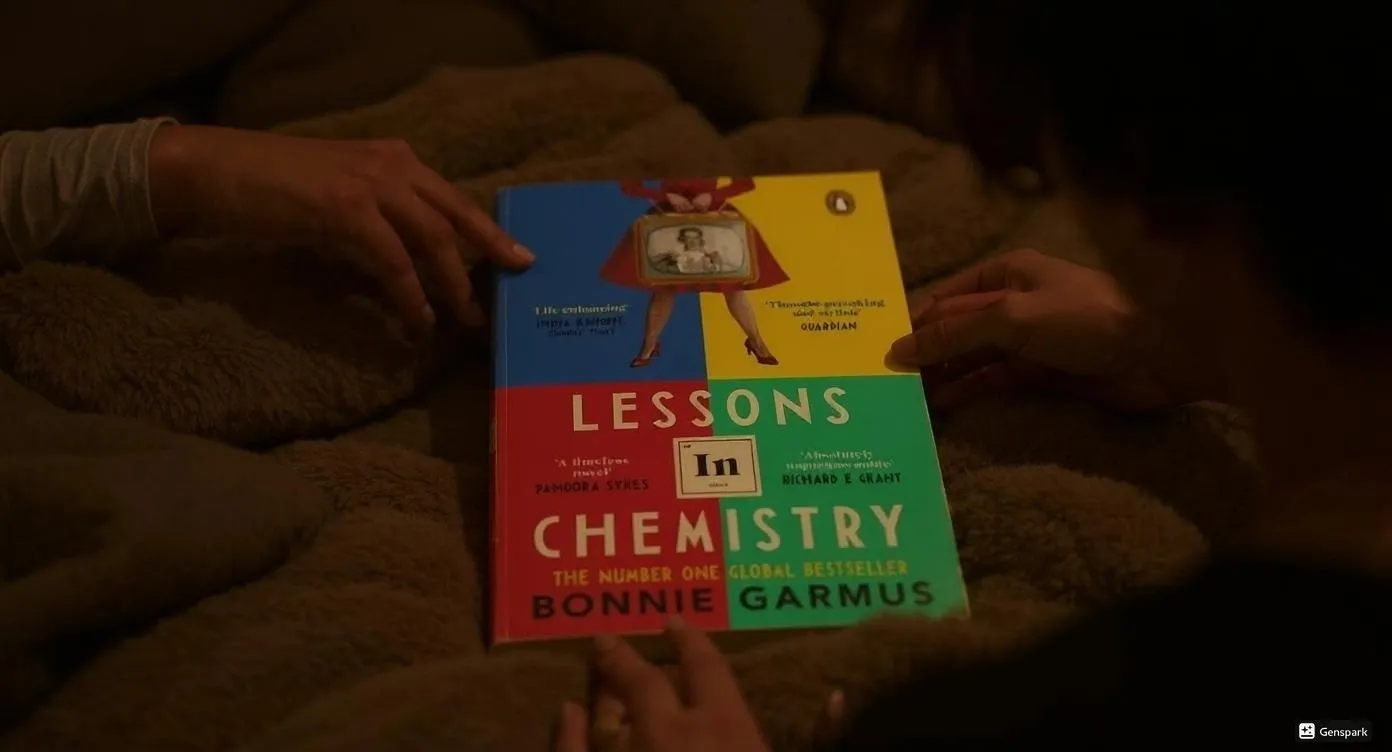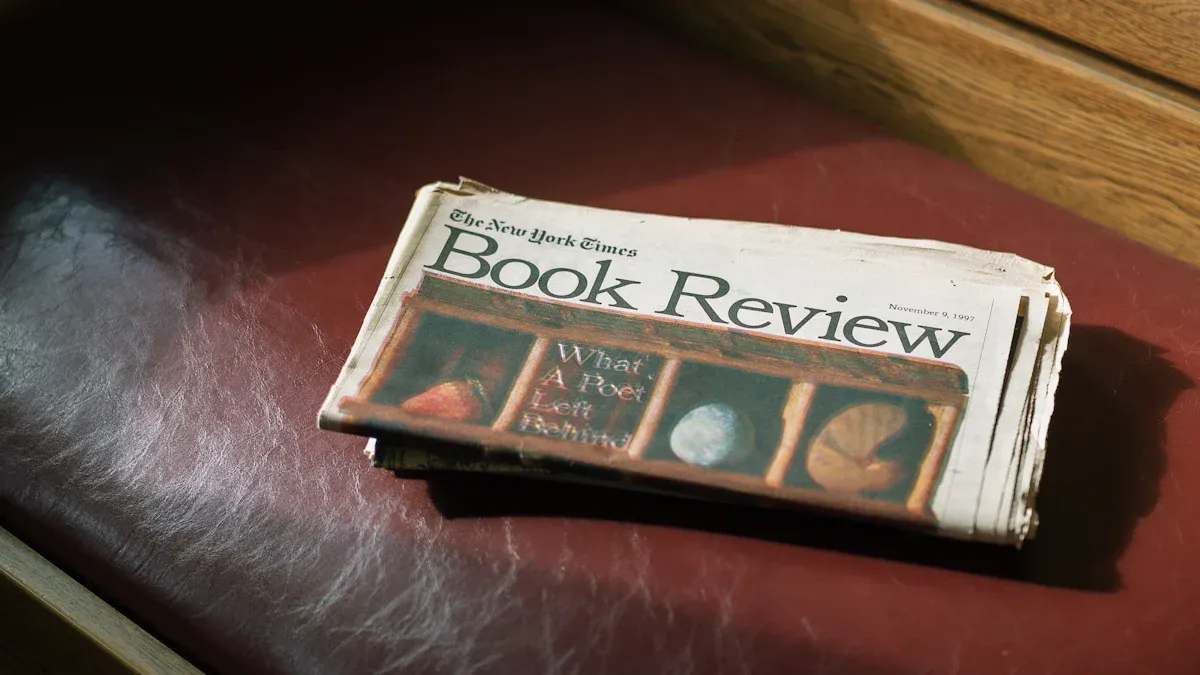I’ll be honest, The Very Long, Very Strange Life of Isaac Dahl had me flipping pages late into the night. If you love character-driven stories that stretch across decades, this book stands out.
The structure jumps through twelve crucial days in Isaac’s life—each one shaped by real history and queer identity.
LGBTQ+ stories in YA have grown a lot since 2011, but it’s still rare to find one with this kind of historical sweep and depth.
Readers who crave realistic characters and true-to-life settings, especially in historical fiction, will feel right at home.
Key Takeaways
The book tells Isaac’s story in twelve days. This makes the story feel new and interesting.
Isaac speaks in a true and open way. This helps readers feel close to him.
We see his hard times and how he changes over the years.
The story shows real LGBTQ+ people in history. This makes the book special and easy to remember.
Worth Reading?
Who Should Read It
I’ll be honest, I didn’t expect to get so wrapped up in Isaac’s story. I found myself reading way past midnight, just to see what would happen next. If you’re wondering if this book is for you, here’s what I’ve figured out:
Fans of character-driven historical fiction will feel right at home. If you love stories that follow a single life across decades, this one delivers.
LGBTQ+ readers and allies looking for authentic representation in a historical setting will appreciate the honesty and depth here.
If you enjoy books that jump through time and focus on big, life-changing moments, you’ll probably get hooked.
Readers who like to see real history woven into fiction—think the Dust Bowl, civil rights movement, and more—will find plenty to chew on.
The book’s structure makes it a good pick for book clubs or anyone who likes to discuss how a single day can change everything.
Tip: If you usually read print books, you’re not alone. Most readers—especially adults and older folks—still prefer physical copies. I read this one in paperback, and it just felt right for the story’s old-school vibe.
Here’s what I noticed about who’s picking up books like this:
People with a college education and those who read often tend to gravitate toward historical fiction.
Adults and older readers make up the biggest group for these kinds of sweeping, reflective novels.
If you’re into memoirs, coming-of-age stories, or LGBTQ+ history, you’ll probably connect with Isaac’s journey.
What Makes It Unique
What really sets this book apart? I have to give props to Bart Yates for taking risks with both style and subject matter. Here’s what stood out to me:
The story unfolds over twelve pivotal days in Isaac’s life, each chapter zeroing in on a single, unforgettable moment. This isn’t your typical cradle-to-grave saga.
The memoir-style narration feels raw and personal. I felt like Isaac was confiding in me, not just telling a story.
The book blends real historical events with deeply personal struggles, especially around identity and survival. It’s not just about what happened in the world, but how it shaped one person’s life.
The writing style plays with time and memory, sometimes jumping or lingering, which reminded me of authors like Virginia Woolf or David Mitchell. It’s a little experimental, but never confusing.
The focus on queer identity across nearly a century is rare. Most LGBTQ+ novels stick to one era, but this one shows how things change—and don’t—over a lifetime.
Here’s a quick look at some trends that make this book stand out:
More books now break away from traditional storytelling, using unique formats or blending genres. This one fits right in with that trend.
There’s a move toward stories that challenge realism and play with form, which I noticed here in the way the chapters jump through time.
Online reviews and social media buzz have a real impact. I saw lots of positive chatter about this book’s emotional punch and character depth, which matches my own experience.
I couldn’t put it down. The mix of history, identity, and raw honesty left me gasping more than once. If you want a book that feels both classic and fresh, this one’s worth your time.
The Very Long Life

Isaac’s Journey
I felt like I lived a whole lifetime with Isaac. The Very Long story covers almost a century, but it never drags. Each chapter zooms in on one day that changes everything for him. I loved how the memoir style made it feel like Isaac was talking right to me, sharing his secrets and regrets.
Isaac faces huge challenges, from the 1926 avalanche to the heartbreak of the AIDS crisis.
He stands up during the 1960s desegregation backlash, showing real courage.
Family means everything to him. I saw how his bond with relatives kept him going, even when the world felt cold.
Isaac’s journey as a gay man in The Very Long sweep of history felt honest and raw. He builds deep friendships and finds comfort in platonic love, not just romance.
He helps raise nieces, nephews, and even great-nieces and nephews. That sense of connection and endurance really stuck with me.
Key Historical Moments
The Very Long story doesn’t just mention history—it lives in it. Each chapter drops Isaac into a real event, making the past feel close.
The 1926 avalanche, the Dust Bowl, and the civil rights movement all shape Isaac’s life.
The book uses real documents and timelines to ground these moments. I could almost see the old papers and feel the weight of history.
These events aren’t just background. They push Isaac to grow, love, and sometimes lose.
I have to give props to Bart Yates for weaving The Very Long sweep of time into something so personal. The mix of big history and small moments made me care about every page.
Structure
Twelve Days Format
The book’s structure grabbed me right away. Instead of following Isaac year by year, the story jumps to twelve unforgettable days from his nearly 100-year life. Each chapter focuses on just one day, but that day always changes everything for Isaac. I found this approach super refreshing. It kept the pace quick and made every chapter feel important.
Each chapter stands alone, but together they build a full picture of Isaac’s life.
I never felt lost or bored. The format made me want to see which day would come next.
The story skips the boring parts and zooms in on the moments that matter most.
I loved how this format made me think about my own life. Which days would I pick if I had to tell my story in twelve chapters?
Memoir Perspective
The book reads like a memoir, with Isaac telling his story in the first person. This style made me feel like I was sitting across from him, listening to his secrets and memories. The honesty and rawness pulled me in. I trusted Isaac, even when he admitted his mistakes.
First-person narration made the story feel personal and real.
I felt Isaac’s emotions—his fear, hope, and joy—because he shared them directly.
The memoir style let me see the world through Isaac’s eyes, making every moment more powerful.
I’ve noticed that memoirs like this build trust and keep readers hooked. When an author shares their truth and doesn’t over-explain, I get to fill in the gaps and connect the dots myself. That makes the reading experience feel special and keeps me turning the pages.
Themes
Survival and Identity
I have to admit, Isaac’s story made me think about what it really means to survive. Every chapter felt like a new test—sometimes physical, sometimes emotional. I saw Isaac fight through disasters, heartbreak, and the slow changes of time. He never gave up on who he was, even when the world tried to push him down.
Survival isn’t just about living through tough times. It’s about holding on to your sense of self.
Isaac’s journey reminded me of research I’ve read on how stories help people make sense of their lives. Experts say that when people tell stories about agency (taking action) and connection, they feel stronger and more hopeful.
I noticed that Isaac’s story had moments of loss, but also moments of growth. That mix made his journey feel real, not just a fairy tale.
LGBTQ+ Representation
I couldn’t help but notice how rare it is to see a queer character like Isaac at the center of a sweeping historical novel. Most books still don’t show LGBTQ+ lives in such detail or with this much heart.
Studies show that only a small number of books each year feature LGBTQ+ main characters, and even fewer show the full range of queer experiences.
I loved that Isaac’s story didn’t hide or sugarcoat his identity. The book felt honest and open, not just a side note.
Community feedback and research say that positive, real LGBTQ+ stories help readers feel seen and understood. This book does that.
If you’re looking for a story that treats queer identity as something real and important, not just a plot twist, this one stands out.
Characters

Isaac Dahl
I have to admit, Isaac Dahl felt so real to me that I sometimes forgot he was a character. I found myself rooting for him, even when he made mistakes. Isaac’s voice pulled me in from the first page. He’s not perfect, and that’s what makes him unforgettable.
Isaac’s honesty made me trust him. He shares his fears, his hopes, and even his regrets.
I saw him grow from a scared boy into a wise, sometimes stubborn, old man.
He faces heartbreak, joy, and everything in between. I felt every win and loss right along with him.
Isaac’s journey as a gay man in a changing world felt raw and true. He never hides who he is, even when it’s risky.
There were moments when Isaac’s pain left me gasping. I had to put the book down and just breathe.
Agnes and Bo
Agnes and Bo brought so much warmth to the story. I loved how they stood by Isaac, even when things got tough. Their loyalty and humor gave the book a lighter touch.
Agnes is sharp, funny, and fiercely protective. She doesn’t let Isaac wallow for long.
Bo feels like the steady rock. He listens more than he talks, but when he speaks, it matters.
Their friendship with Isaac shows what chosen family can look like.
I’ll be honest, I wanted more scenes with Agnes and Bo. They made the hard parts easier to read. Their love and support helped Isaac survive the hardest days.
Writing Style
Tone and Language
I have to admit, the tone in this book hooked me right away. Bart Yates writes with a voice that feels honest and close, like Isaac is whispering his story just to me. The language stays simple and clear, but every word feels chosen with care. I noticed how the sentences flow—sometimes short and sharp, sometimes stretching out with emotion. This mix kept me on my toes and made the story feel alive.
First-person narration pulls me in and makes every moment feel personal.
The book avoids fancy words or confusing sentences, which helps me stay connected.
I saw how the author uses precise language to set the mood—sometimes hopeful, sometimes heavy.
I found myself pausing to reread lines that hit hard. The emotional honesty left me thinking about my own life.
Reviewers say a good review should focus on specific examples and keep the tone fair. I agree. I noticed how the book balances tough moments with warmth, never tipping into harshness or sugarcoating the truth.
Blending Fact and Fiction
Reading this book felt like walking a line between memory and history. The memoir style means Isaac’s story blends real events with his own feelings and memories. I’ve read other memoirs, like those by Maya Angelou or Mary Karr, that do the same thing—mixing facts with emotional truth.
The story uses real events, but sometimes the details feel dreamlike or symbolic.
I trust Isaac’s voice, even when I know memory can play tricks.
Writers and critics talk a lot about how memoirs should balance truth and storytelling. Some say it’s okay to shape memories for meaning, but others want strict honesty. I think this book lands in the sweet spot. It feels true, even when it’s not just a list of facts. That’s what makes it stick with me.
Strengths & Weaknesses
I’ll be honest, I lost track of time reading this book. I stayed up way too late, telling myself “just one more chapter.” Sometimes I even forgot to eat dinner. That’s how much Isaac’s story pulled me in.
Here’s what stood out to me:
Strengths:
Unique structure: The twelve-day format kept me guessing. I never knew which moment would come next.
Emotional honesty: Isaac’s voice felt real. He didn’t hide his pain or joy. I felt every win and loss with him.
Historical detail: The book made big events feel personal. I learned about the past without feeling like I was in a history class.
LGBTQ+ representation: I rarely see queer characters in stories that cover so much time. This felt fresh and needed.
Weaknesses:
Some chapters felt rushed. I wanted more time in certain years, especially during big changes.
The side characters sometimes faded into the background. I wished for more scenes with Agnes and Bo.
The memoir style might not work for everyone. If you like fast action or lots of plot twists, you might get restless.
Note: I couldn’t put it down, but I know not every reader will feel the same. The pace slows in places, and the focus stays tight on Isaac’s inner world.
Recommendation
Ideal Audience
I’ll be honest, I lost track of time with this book. I read way past midnight, curled up with my paperback, and forgot about everything else. My heart raced during some chapters, and I even had to pause to catch my breath. If you’ve ever finished a book and just stared at the ceiling, thinking about your own life, you’ll know what I mean.
So, who should pick up this story? Here’s what I noticed:
You love character-driven stories that focus on one person’s life across decades.
You want honest LGBTQ+ representation that feels real, not just a plot device.
You enjoy books that blend real history with personal stories.
You like unique formats—the twelve-day structure keeps things fresh.
You’re in a book club or just love discussing how a single day can change everything.
If you’re looking for a fast-paced thriller, this isn’t it. But if you want a book that makes you feel and think, you’ll find a lot to love here.
I’ve seen other reviewers praise books for their storytelling, emotional punch, and the way they pull you in. Here’s what makes a book stand out for me (and for many readers):
The author’s storytelling skill keeps the story engaging and impactful.
The writing style feels accessible and draws you in, even if the topic is heavy.
The emotional delivery feels honest and real, making the story stick with you.
Final rating:
I couldn’t put down The Very Long. The unique twelve-day format, honest LGBTQ+ story, and emotional punch made it special. Some chapters felt rushed, but I still cared about Isaac.
Perfect for fans of character-driven, historical fiction
My Dionysus Review Rating: 7/10
Sip The Unknown—Discover Stories You Never Knew You’d Love!
Dionysus Reviews Has A Book For Every Mood
Biography & Memoir
Fiction
Mystery & Detective
Nonfiction
Philosophy
Psychology
Romance
Science Fiction & Fantasy
Teens & Young Adult
Thriller & Suspense
Frequently Asked Questions
Does the book need to be read in order?
I read it straight through, but you could jump between chapters. Each day stands alone, but reading in order gives Isaac’s life more meaning.
Is this book good for younger readers?
I’d say it fits best for older teens and adults. Some topics feel heavy. I wouldn’t hand it to a middle schooler.
Will I like it if I don’t usually read historical fiction?
If you love stories about real people and big feelings, you might get hooked—even if history isn’t your usual thing.









